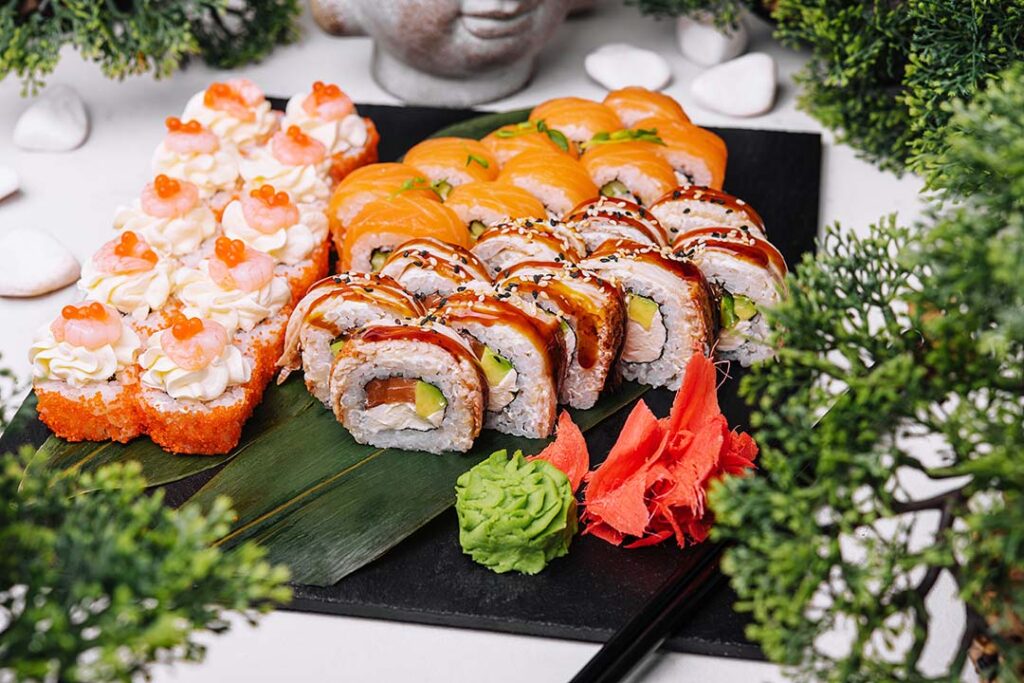Health
Artificial Intelligence in Medicine: The Future of Healthcare and Its Challenges

The intersection of technology and healthcare has always been a hotbed of innovation, but perhaps no advancement has been as transformative as Artificial Intelligence (AI). As AI continues to make inroads into various medical domains, it promises to revolutionize everything from diagnosis to treatment. However, with great power comes great responsibility, and the integration of AI in medicine is not without its challenges.
Revolutionizing Diagnostics
One of the most significant contributions of AI in healthcare is in the realm of diagnostics. Advanced algorithms can now analyze medical images, such as X-rays and MRIs, with precision often surpassing human experts. Early detection of conditions like cancer has become more accurate, potentially saving countless lives.
Personalized Treatment Plans
Beyond diagnosis, AI is playing a pivotal role in crafting personalized treatment plans. By analyzing a patient’s genetic makeup, medical history, and other data, AI can recommend treatments tailored specifically for the individual, increasing the chances of successful outcomes.
Operational Efficiency
Hospitals and clinics are leveraging AI to streamline operations. From managing patient appointments to predicting patient inflow during emergencies, AI is helping healthcare institutions operate more efficiently and effectively.
The Flip Side: Challenges and Concerns
While the benefits of AI in healthcare are undeniable, there are significant concerns. Data privacy is a paramount issue. With AI systems requiring vast amounts of data to function optimally, ensuring the security and confidentiality of patient information is crucial.
Additionally, there’s the risk of over-reliance on AI, potentially sidelining the human touch that is so essential in healthcare. Misdiagnoses by AI, though rare, can have severe consequences, emphasizing the need for human oversight.
Lastly, there’s the ethical dilemma of job displacement. As AI systems become more prevalent, there’s growing concern about the potential reduction in the need for certain medical professionals.
Artificial Intelligence stands poised to redefine the future of medicine, offering tools and insights that could transform patient care. However, as we embrace this new frontier, it’s essential to navigate its challenges with caution, ensuring that the technology serves as an aid to healthcare professionals, not a replacement. The goal remains clear: better patient outcomes and a brighter future for healthcare.
Health
Learning from Japan: The Secrets to a Healthier Lifestyle

Japan, an archipelago known for its rich history, technological advancements, and unique culture, has another feather in its cap: a reputation for healthy living. The Japanese are often cited for their longevity, low obesity rates, and overall wellness. While there are many factors contributing to this, one of the most significant is their dietary habits. As the West, particularly the US, grapples with rising health concerns, there’s much to be learned from the Japanese way of life.
The Japanese Diet: A Symphony of Balance and Moderation
At the heart of Japanese cuisine is a philosophy of balance and moderation. Unlike the supersized portions often found in Western countries, Japanese meals emphasize portion control. This doesn’t mean they eat less; rather, they consume a variety of foods in smaller quantities. This approach not only ensures a range of nutrients but also prevents overeating.
Rice, a staple in Japanese meals, serves as a foundation. It’s complemented by an array of vegetables, fish, and lean meats. The Japanese have a deep appreciation for seasonal and local produce, which means their meals are not only fresh but also diverse, changing with the seasons.

Another significant aspect of the Japanese diet is their consumption of fish. Rich in omega-3 fatty acids, fish like salmon, mackerel, and sardines are known for their heart-healthy benefits. Contrast this with the Western diet, which often leans heavily on red meats that, when consumed in excess, can contribute to various health issues.
Soups, particularly miso soup, are another staple. Made from fermented soybean paste, miso is rich in probiotics, aiding digestion and promoting gut health. This emphasis on fermented foods, which also includes items like pickled vegetables, introduces beneficial bacteria into the diet.
Beyond the Plate: Mindful Eating and Physical Activity
It’s not just about what the Japanese eat, but also how they eat. The practice of “Hara Hachi Bu,” which translates to “eat until you are 80% full,” is a Confucian teaching that many in Japan abide by. This mindful approach to eating encourages individuals to listen to their bodies, eat slowly, and recognize when they are satiated.
Physical activity is seamlessly integrated into daily life in Japan. Whether it’s walking or cycling to work, practicing traditional arts like Kendo and Karate, or participating in group exercises in parks, the Japanese find ways to stay active. This is in stark contrast to the sedentary lifestyles that have become prevalent in many Western countries.
What Can the West Learn?
For those in the West looking to adopt healthier habits, the Japanese lifestyle offers several takeaways:
- Diversify Your Diet: Instead of sticking to the same foods, explore a variety of vegetables, grains, and proteins. This not only provides a range of nutrients but also keeps meals interesting.
- Embrace Seafood: Consider incorporating more fish into your diet. If you’re not a fan of fish, explore other sources of omega-3s like flaxseeds, walnuts, and chia seeds.
- Mindful Eating: Pay attention to your body’s signals. Eat slowly, savor each bite, and stop when you’re satisfied, not when you’re stuffed.
- Stay Active: Find ways to integrate physical activity into your daily routine, whether it’s taking the stairs, walking more, or picking up a new sport.
While cultural and geographical differences exist, the principles of a balanced diet and active lifestyle are universal. By looking to Japan and understanding their approach to health and wellness, there’s an opportunity for many in the West to make positive changes for a longer, healthier life.
Health
The Intricate Challenge of Eating Healthy: Unraveling the Why and How

In the modern age, where convenience is king and time is often a luxury, the challenge of consistently eating healthily is one that many grapple with. The allure of fast food, the ubiquity of processed snacks, and the ever-present temptation of sugary treats make it a Herculean task for even the most disciplined among us. But why is it that we find it so difficult to make healthier choices, and how can we navigate this complex landscape to achieve our nutritional goals?
The Science Behind Our Choices
To understand the difficulty of eating healthily, we must first delve into the intricacies of human biology and psychology. Our ancestors evolved in environments where high-calorie foods were scarce. As a result, our brains are hardwired to seek out and enjoy calorie-dense foods, a trait that was once advantageous for survival. This evolutionary predisposition, combined with the modern food industry’s expertise in creating hyper-palatable foods, results in a potent mix that drives us towards unhealthy choices.
Moreover, the neurotransmitter dopamine plays a pivotal role. When we consume foods high in sugar, fat, and salt, our brain releases dopamine, a “feel-good” chemical. Over time, we can become conditioned to seek out these foods to experience that dopamine rush, much like any other addictive behavior.
The Environmental Maze
Beyond our biological predispositions, the environment in which we live is a veritable minefield of unhealthy temptations. Advertisements for junk food are omnipresent, and unhealthy options are often cheaper and more accessible than their healthier counterparts. This accessibility disparity is particularly pronounced in “food deserts,” urban areas where residents have limited access to fresh, healthy foods.
Furthermore, our modern lifestyles often prioritize speed and convenience. In a world where we’re constantly on the go, it’s no wonder that quick, processed foods have become the norm. The time and knowledge required to prepare fresh, nutritious meals can seem daunting, especially when juxtaposed against the ease of grabbing a pre-packaged snack or ordering takeout.
Charting a Healthier Course
Given these challenges, how can we make healthier eating choices? One strategy is to harness the power of habit. While our initial forays into healthier eating might require conscious effort, over time, these choices can become ingrained habits. For instance, by consistently choosing a salad over a burger for lunch, we can rewire our brain’s reward system to associate pleasure with the healthier option.
Another approach is to make healthy eating more convenient. This might involve batch-cooking meals on the weekend, investing in a slow cooker to have a hot, nutritious meal ready when you come home, or simply keeping a stash of healthy snacks at your desk to avoid the mid-afternoon vending machine run.
Education is also paramount. By understanding the nutritional content of foods and the impact of various nutrients on our health, we can make more informed choices. This doesn’t mean you need a degree in nutrition, but even a basic understanding of macronutrients and micronutrients can go a long way.
Lastly, it’s crucial to remember that perfection isn’t the goal. Everyone has moments of weakness or situations where unhealthy food is the only option. Instead of beating ourselves up over these instances, we should view them as learning opportunities and focus on making better choices in the future.
While the deck might seem stacked against us when it comes to making healthy food choices, with understanding, strategy, and a bit of perseverance, we can navigate the modern food landscape in a way that supports our health and well-being.
Health
The Science of Sleep: Unraveling the Night’s Mysteries and Its Impact on Modern Life

In the hustle and bustle of our fast-paced world, sleep often takes a backseat. With the allure of technology, the demands of work, and the challenges of daily life, many are sacrificing the one thing that might hold the key to our well-being: a good night’s sleep. But what does science tell us about the importance of sleep, and what are we risking by neglecting it?
The Biological Imperative of Sleep
Sleep isn’t just a passive state of rest. It’s a complex biological process that plays a crucial role in a range of physiological and cognitive functions. During sleep, the body undergoes repair and regeneration, toxins are cleared from the brain, and memories are consolidated. It’s a time when the brain processes the events of the day, making sense of experiences and emotions.
The Modern Sleep Crisis
Despite its importance, sleep is often the first thing to go in our modern schedules. A recent study found that nearly one-third of adults are not getting the recommended 7-9 hours of sleep per night. The reasons are manifold: the blue light from our screens disrupting our circadian rhythms, the pressure to be constantly “on” in a 24/7 society, and the stressors of modern life all contribute to sleep deprivation.
The Consequences of Neglect
The cost of neglecting sleep is high. Chronic sleep deprivation has been linked to a host of health issues, including obesity, diabetes, cardiovascular disease, and weakened immune function. Moreover, lack of sleep affects our cognitive abilities, leading to reduced concentration, impaired judgment, and increased risk of accidents.
Mentally, sleep deprivation can exacerbate feelings of stress, anxiety, and depression. The emotional toll can strain relationships, reduce job performance, and diminish overall quality of life.
Sleep and Productivity: A Direct Link
Contrary to the notion that burning the midnight oil boosts productivity, research suggests the opposite. Well-rested individuals are more focused, make fewer errors, and are more efficient in their tasks. Companies are starting to recognize this, with some introducing nap pods and emphasizing the importance of work-life balance.
Reclaiming Our Nights
The good news is that the benefits of a good night’s sleep are within reach. Simple changes, such as establishing a regular sleep schedule, creating a conducive sleep environment, and reducing screen time before bed, can make a significant difference.
The journey to better sleep and improved well-being is paved with intentional choices. While establishing a regular sleep schedule is foundational, there are several other strategies to enhance our nightly rest:
- Digital Detox: Limiting screen time at least an hour before bed can help reduce the blue light exposure that disrupts our natural sleep-wake cycle.
- Sleep Environment: Creating a serene and dark environment, perhaps with blackout curtains or using white noise machines, can signal to the body that it’s time to wind down.
- Mindful Practices: Incorporating relaxation techniques such as deep breathing exercises, meditation, or reading a calming book can prepare the mind for sleep.
- Dietary Choices: Avoiding caffeine and heavy meals in the evening can prevent sleep disturbances. Opting for herbal teas like chamomile can promote relaxation.
- Physical Activity: Regular exercise, preferably in the morning or early afternoon, can improve sleep quality. However, it’s best to avoid vigorous activity close to bedtime.
- Sex: Engaging in intimate activities can release oxytocin, a hormone that promotes relaxation and reduces stress, potentially aiding in better sleep.
As science continues to uncover the mysteries of sleep, one thing is clear: sleep is not a luxury but a necessity. In our quest for success and productivity, it’s essential to remember that sometimes, the best thing we can do is simply close our eyes and drift off to the world of dreams.
-

 News2 years ago
News2 years agoHuawei’s Bold Move into AI: A New Era or Another Controversy?
-

 Lifestyle2 years ago
Lifestyle2 years agoApple’s Vision Pro: Setting New Standards in VR and AR Technology
-

 Tech2 years ago
Tech2 years agoThe Horizon of Innovation: The 10 Most Promising Future Technologies Shaping Our Tomorrow
-

 News2 years ago
News2 years agoTragic Bus Crash in New York Claims Two Lives; Multiple Students Injured
-

 News2 years ago
News2 years agoEscalation in Ukraine-Russia Conflict: Missile Strikes Target Key Installations in Crimea
-

 Politics2 years ago
Politics2 years agoPoland Halts Arms Shipments to Ukraine Amid Rising Tensions Over Grain Ban
-

 News2 years ago
News2 years agoHouse GOP Faces Deep Divisions Over Government Funding Ahead of Deadline
-

 Health2 years ago
Health2 years agoThe Placebo Effect: A Double-Edged Sword in Modern Medicine








